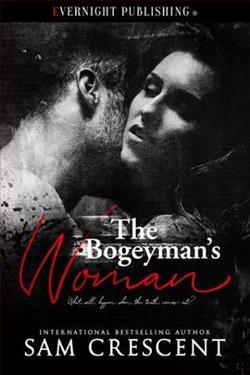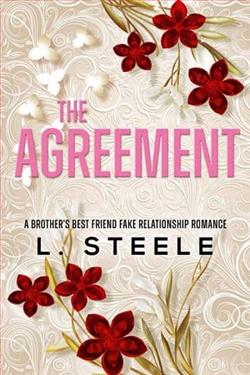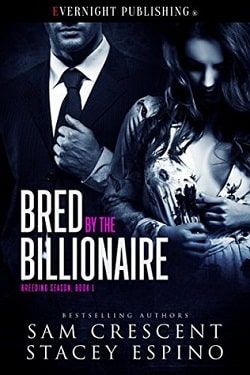Page 1 of Going Home in the Dark
1Two Pounds Five Ounces
From Rebecca Crane’s backyard, forty steps led to the beach, where sharp-billed sandpipers scurried along the fringe of foaming surf, pecking without cease for their sustenance, as if they were an enfevered species that never knew a moment of peace. That morning, she descended the stairs twelve times and climbed them eleven times before she set off on a run along the shore.
At thirty-five, Rebecca wasn’t old; however, she wasn’t young, either, not by the standards of her profession. In dog years, she was three times dead. If she’d been an elephant, a species that lived seventy years, she would be halfway through her life, but if she had been a gorilla, she would have as little as a week left and certainly not more than several months. If she had been a kangaroo, she would have hopped into the void perhaps twelve years earlier.
She knew the average lifespans of many animals, not because she was a veterinarian or zoologist, but because she had a healthy fear of death that was somewhat greater than the average person’s healthy fear of death. She wasn’t depressive or paranoid or obsessed with her mortality. Nothing like that. She had a sunny disposition and was quick to laugh even at jokes about death, though when the humor was related to something else, her laughter was more robust.
Her family history did not give her reason to worry that her life might be cut short. Her mother, Sally, was still alive and vigorous and living in Miami Beach with someone named Fernando. Her maternal grandparents, Charlie and Ruth Crane, were alive and playing ferocious pickleball with other octogenarians in Palm Springs. Sally refused to reveal the identity of her daughter’s father, whom she hated for reasons she wouldn’t discuss. A year earlier, she told Rebecca that he recently died because he trusted an alcoholic bungee master to measure his jumping cord for him.
Sally wasn’t the most truthful person in the world, but in this case she seemed sincere. When she described how “that reckless fool” had slammed full speed into a barge full of garbage that was passing under the bungee bridge, her laughter was unmistakably genuine.
Rebecca never actually died in her dreams but woke just as she was shot or stabbed—or as she was set on fire, thrown off a cliff, run down by a truck, crammed into a wood chipper, strangled with a scarf, beheaded by a scimitar, devoured by something mysterious with a large mouth ... Not all of her dreams ended with her murder in progress, only 97 percent of them.
As she ran south along the beach, the Pacific Ocean sparkled with morning sunshine, and a formation of pelicans glided along in concert with her. She stayed a respectful distance from the breaking surf because she’d too often drowned in her dreams or been devoured by something weird that came out of the water.
Although she didn’t put a lot of faith in psychiatry, she’d gone to a therapist who fixated on her dreams and gave them more importance than she believed he should. He insisted that they were rooted in some trauma in her childhood, and his unhinged insistence eventually caused her to stop consulting him.
Yes, she was fatherless, and her mother was a piece of work, ill-suited for the responsibilities of motherhood, always running off with men who had Spanish names. However, Rebecca had grown up in a peaceful and picturesque town in the heartland, much like a place in a 1950s TV program, where she was raised by Grandpa Charlie and Grandma Ruth. Charlie and Ruth pretended to be lovebirds, though in fact they loathed each other, but it worked for them because they took great pleasure in loathing. Although her grandparents’ house was a cold-war zone where poisonous words were coated in a candy of faux affection, Rebecca had wonderful friends who, with her, called themselves the four amigos. Three had fled Maple Grove after high school, but they remained in touch with one another almost two decades later.
Her violent dreams and her healthy fear of enduring a horrific death were more likely than not a consequence of her work, which was demanding and stressful. Her profession provided significant income and emotional satisfaction, but no stability, and half the people with whom she worked were crazy.
After running two miles south, she turned north toward home, though retracing her steps would not be the end of her exercise session. She needed to climb and descend the beach stairs at least six more times because she was two pounds and five ounces over her ideal weight, and she was thirty-five years old, which was almost two hundred fourteen in dog years.
Calves afire, thighs aching, abdominal muscles fluttering, she ascended the stairs from the beach for the last time that day. She stepped through her gate and, with a key, locked it behind her. As she made her way up the sloped garden path, she was dismayed to hear her labored breathing as loud and desperate as if she were again in that cornfield at midnight, fleeing from Judyface, theeleven-fingered maniac in the Judy Garland mask, whom she had failed to kill with a pitchfork inShriek.
There had been a time when, after a morning run and the torture of the stairs, she haddancedup this brick walkway, past the roses, danced with all the grace of Audrey Hepburn, with the blithe and giggly charm of Goldie Hawn.
Now, when she reached the patio, Rebecca wanted to flop on one of the chaise lounges and stare at the sea until she recovered from the near-death experience of trying to lose two pounds five ounces. However, the patio surrounded the seventy-foot pool in which she swam a hundred laps on days when she didn’t run, an ordeal she could not block from memory and that she was loath to contemplate.
She stepped into the kitchen and closed the door and relocked both deadbolts against all maniacs with unusual anatomical features and weird face coverings.
From one of the two Sub-Zero refrigerators she snared a bottle of a foul-tasting but rapid-hydrating beverage rich in electrolytes. Standing in the stink of her sweat, she consumed the witch’s brew without the grimacing that would have promoted fine wrinkles at the corners of her eyes.
The exterior of her house was classic Cape Cod. Shingled roof. Shingled walls. Glossy white millwork. The interior, however, was sleek and ultramodern.
Rebecca liked to think the house was the opposite of her; she was Hollywood glamour on the outside, when she wasn’t sweating like a pig in a luau pit, but a small-town down-home girl-next-door type on the inside. She could be just as happy if she had to give up her acting career and earn a living as a waitress in a diner. That was what her publicists wanted her to be, but she believed itwas more or less who she really was, just Becky Crane from Maple Grove, except for the wanting-to-be-a-waitress thing.
As she stood in her enormous kitchen—with its full array of stainless-steel appliances and Brazilian-blue quartzite countertops, her perspiration spattering the honed limestone floor—she found it amazing that she’d come from a picturesque backwater like Maple Grove to the bright lights and scary dysfunction of Los Angeles, from girl nerd to celebrated performer, in only seventeen years.
Although the time seemed to have passed faster than clocks could account it, her success had not come overnight. For three years, she’d worked at this and that—as a dog walker, a personal trainer, a waffle-house hostess ... For two shameful months, she’d engaged in phone sales, making cold calls to peddle something called the Golden Years Medicine Cabinet to seniors, which consisted of an arthritis-pain “diminimizer,” the world’s most reliable toe-fungus eliminator, a favored antacid of presidents and kings so exclusive that it wasn’t sold in stores, a stool softener guaranteed to cure constipation when all similar remedies failed, and other products for the treatment of warts, age spots, split nails, and the tragedy of uncontrolled flatulence.
Then she got her big break inShriek, which for two weeks was the number one movie in America. Eighteen months later,Shriek and Shriek Againdoubled the box office of the first film. Rebecca was only twenty-six years old whenShriek Hard, Shriek Hardercompleted the trilogy; it was the biggest hit of the three and the first to garner critical acclaim.
Of the scores of young actors who appeared in the franchise, Rebecca was the only one to become a star. All the other characterswere killed off after such a short amount of screen time that they couldn’t make a lasting impression.
She felt sorry for them, though not really. Hollywood is a dog-eat-dog environment, which is no reflection on dogs, only something that people say.
Between theShriekfilms, there were marking-time roles, but following the third movie came the biggest break. She was cast as one of five hot young strivers in the city, an edgy situation comedy calledEnemies.LikeFriendsbut mean, full of snark and vicious put-down humor, it was aFriendsfor this new, less friendly, more desperate, cynical America—an immediate hit. The eighth and final season, which had finished filming a week before Rebecca’s run with the sandpipers, would begin to air this coming October.
She was booked to start a major film in four months, a period drama as elegant and emotional asDownton Abbey, although with a violent sociopathic nephew living in the attic unbeknownst to the family below and a supernatural surprise in a secret cellar under the horse stables.
On this fine August morning, after a long shower, she ate an egg-white omelet with kale and zucchini cooked in a tablespoon of olive oil, garnished with thin slices of avocado. In the screenplay, her character was described as “wasp-waisted,” which did not imply that the woman was insectile, only that she was voluptuous top and bottom but minimalist in the middle.
As always, after eating, Rebecca hand-washed and dried her plate, the flatware, the frying pan, the whisk, and other utensils. She left everything in the kitchen sink for one of her housekeepers to arrange in the dishwasher. For reasons she did not understand and never analyzed, she experienced a profound uneasiness bordering on anxiety at the idea of anyone seeing traces of oil or asmattering of crumbs that were a consequence of her having eaten a meal.
Although the compulsion to clean up after herself was stronger at home than beyond the walls of her house, it sometimes overcame her in a restaurant. She carried a pack or two of wet wipes in her purse. On occasion, after finishing each course, she swabbed the plate clean before the waiter returned to collect it, although only when dining with companions who had such colorful eccentricities of their own that they wouldn’t even raise an eyebrow at her wet wipes, which was just about everyone in her social circle.
This benign obsession wasn’t consistent in all aspects of her life, but it manifested at places other than the dining table. When she finished taking a shower, she squeegeed the walls and floor, and then wiped them dry with towels to ensure no one discovered water spots or clusters of shampoo bubbles or, God forbid, a loose hair from either her head or elsewhere. She wiped the bar of soap to be sure it was clean, scrubbed the soap dish, polished the showerhead, the handles, and the other hardware. The bathroom sink was cleaner after she brushed her teeth than before she attended to that task.















